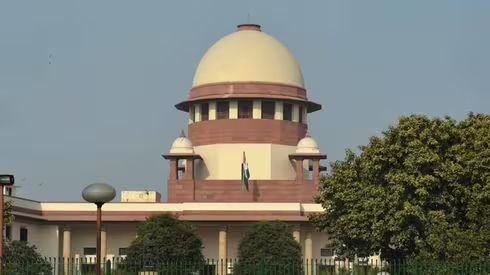Lagatar24 Desk
New Delhi: The Supreme Court’s recent judgment regarding the powers of the Governor in Tamil Nadu has wider implications beyond the state — it carries a strong message for the President of India and the Union Government as well.
The ruling comes in the context of Tamil Nadu Governor RN Ravi withholding assent to 10 Bills passed by the state legislature — a move the court called “illegal” and “arbitrary”. The verdict has also sparked reports that the Centre is planning to file a review petition, concerned that the judgment effectively curtails the powers of the President and, by extension, the Union Council of Ministers.
Courts Have Final Say On Constitutionality, Says SC
The Supreme Court made it clear that only constitutional courts have the authority to decide the legality or constitutionality of a Bill. It stressed that the President should ideally refer Bills raising constitutional questions to the Supreme Court under Article 143 of the Constitution.
The bench of Justice JB Pardiwala and Justice R Mahadevan noted, “It is expected that the Union executive should not assume the role of the courts in determining the vires of a Bill.”
President Should Seek Supreme Court’s Opinion In Complex Cases
The court highlighted that in cases where a Bill is reserved for the President due to concerns over its compatibility with constitutional principles, the President must show prudence and refer the Bill to the Supreme Court for an advisory opinion.
The judges added that this would prevent the executive from acting unilaterally on legal issues, preserving the separation of powers enshrined in the Constitution.
Article 143: Advisory Opinion Holds High Value
The court underlined that although opinions given by the Supreme Court under Article 143 (when sought by the President) are technically not binding, they carry “high persuasive value” and should ordinarily be followed by the legislature and executive.
Rejecting the idea that non-binding advisory opinions are insignificant, the court said, “Merely because the jurisdiction under Article 143 is not binding does not undermine the principles used by this Court to determine the constitutionality of the Bill.”
President Must Provide Reasons If Acting Against SC Opinion
The Supreme Court ruled that if the President chooses to withhold assent to a Bill contrary to the Supreme Court’s advice, then cogent reasons and evidence must be recorded to justify such a decision.
Failure to do so would “do violence to the concept of ‘limited government’ on which the edifice of our Constitution has been built,” the order warned.
Judicial Review Of Presidential Decisions Under Article 201
Another significant aspect of the judgment is the court’s assertion that the President’s actions regarding reserved Bills are subject to judicial review under Article 201 of the Constitution.
This means that the courts can scrutinize and potentially overturn Presidential decisions if found to be unconstitutional or lacking sufficient justification.
Impact On Centre’s Powers And Future Legislation
Reports suggest that the Centre is considering filing a review petition against the verdict. The ruling effectively sets a three-month deadline for Presidential or gubernatorial assent to Bills passed by a state legislature for the second time.
It also curbs the executive’s discretion to withhold assent without strong legal grounds, thus ensuring a greater role for constitutional courts in safeguarding legislative processes.







